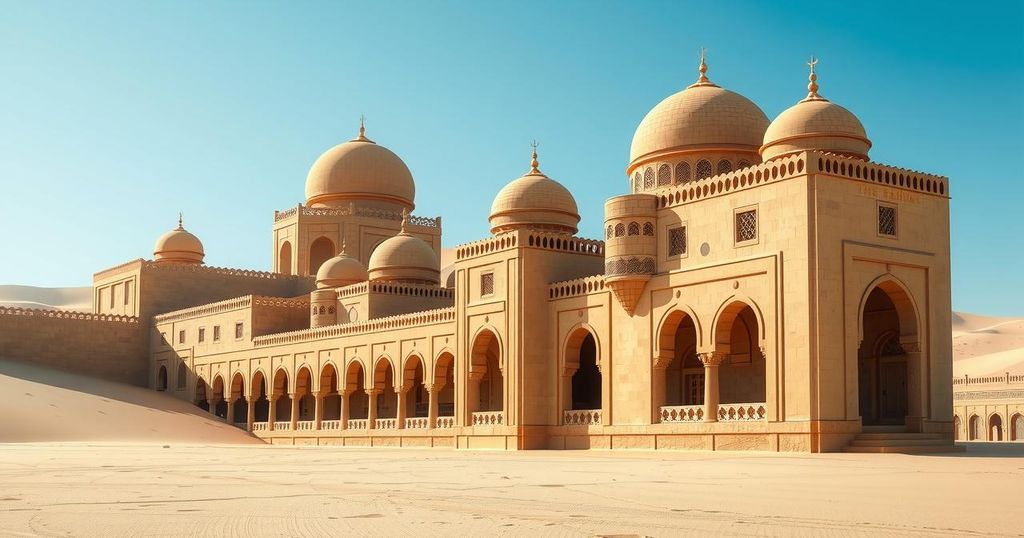The DRC crisis, fueled by M23 rebel activities, involves regional powers such as Rwanda, Burundi, and Uganda, each with their own interests and interventions. President Tshisekedi struggles to regain lost territory and stave off internal threats, while Kagame of Rwanda deflects blame, emphasizing national security. Burundi fears Rwandan expansion, and Uganda has a complex role, engaging against local militants yet allegedly supporting M23. South Africa’s involvement adds further complexity amid a regional divide.
The ongoing crisis in the Democratic Republic of Congo (DRC), exacerbated by the M23 rebels seizing territory in the mineral-rich eastern region, has highlighted the involvement of neighboring countries such as Rwanda, Burundi, and Uganda. This multifaceted conflict, marked by historical foreign interference and ongoing humanitarian concerns, is illustrating the complex dynamics of sub-regional politics and military interventions.
President Félix Tshisekedi of the DRC is primarily focused on reclaiming lost territory and stabilizing the nation against the M23’s advancements. Accusing Rwanda’s Paul Kagame of arming the rebels, Tshisekedi seeks international support to counteract perceived Rwandan aggression and protect his political position amid concerns of internal dissent or a potential coup.
Rwanda, under Paul Kagame, maintains a strategic position by denying military support for the M23 while citing national security threats from Congo. Kagame believes that resistance against Hutu armed groups responsible for the Rwandan genocide is justified and asserts that the DRC’s army collaborates with these factions, thus justifying his involvement and influence in the eastern DRC.
Burundi is cautiously watching the situation as it has deployed troops to support the Congolese army against the M23, amid fears that Rwandan expansion could destabilize its own government. The ongoing hostility between Rwanda and Burundi adds a layer of tension, with both sides wary of political maneuvering that could escalate regional conflict.
Uganda’s role is ambiguous; it officially aids the Congolese government against militant threats tied to the Islamic State but is also accused of providing support to the M23 rebels. Uganda’s military presence amid the chaos may complicate the conflict further, as it seeks to balance its interests against those of its neighbors.
South Africa has actively contributed to regional military efforts alongside the Congolese forces yet found itself embroiled in disputes with Rwanda. Following incidents leading to the deaths of South African soldiers, relations have become strained, underscoring the divide between East African and Southern African regional interests concerning the DRC conflict, revealing the complexities of regional diplomacy.
Ultimately, the DRC crisis reflects a landscape where personal rivalries, historical grievances, and regional ambitions converge, threatening to escalate into broader conflict. Each nation’s actions are driven by concerns for territorial integrity, regime stability, and access to valuable resources, complicating the path to resolution with a need for comprehensive diplomatic engagement among all parties involved.
The crisis in the DRC is rooted in a prolonged history of armed conflict and external interventions, particularly in the eastern provinces rich in minerals such as gold and coltan. The emergence of armed groups like the M23 has reignited tensions, drawing in regional actors whose interests intersect with the DRC’s instability. The current humanitarian situation demands urgent attention amidst accusations and political maneuvering between involved nations, highlighting a critical need for effective diplomatic solutions to restore peace in the region.
The situation in the DRC remains precarious, with neighboring countries entangled in a complex web of political and military interests. The actions of Rwanda, Burundi, and Uganda will shape the future of the region, as they navigate their own national security concerns while responding to the unfolding crisis. A collaborative approach emphasizing dialogue and diplomatic negotiations is crucial to ensure long-lasting peace and stability in the DRC and surrounding areas.
Original Source: www.bbc.com




